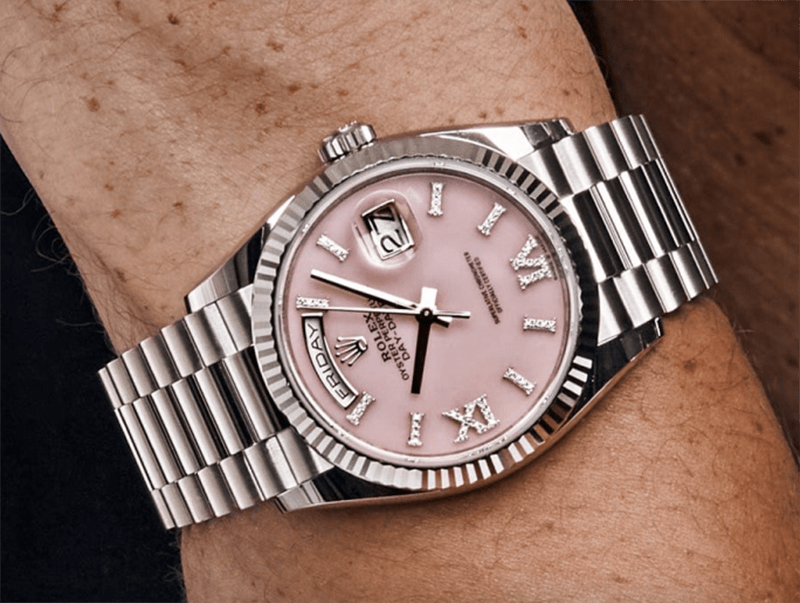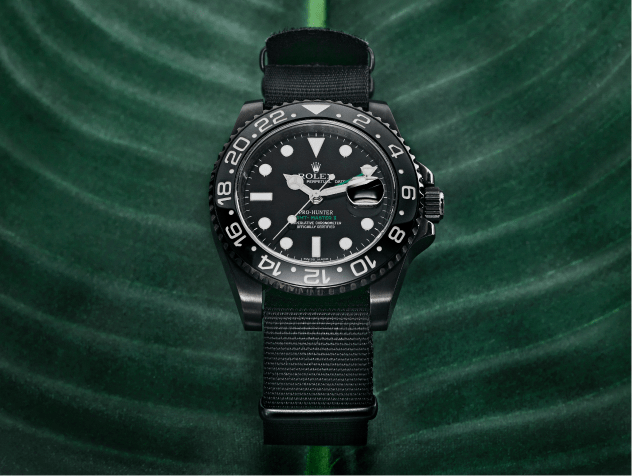Introduction:
In recent years, a growing awareness of sustainability and ethical practices has prompted consumers to make conscious choices in various aspects of their lives, including the products they purchase. The demand for sustainable and ethical products has extended to the world of fashion, with consumers seeking alternatives that align with their values. One such area of focus is the watch industry, where manufacturers are increasingly adopting environmentally friendly practices and ethical sourcing of materials. In this blog post, we will delve into the world of sustainable and ethical watches, exploring how watch manufacturers are embracing sustainability, the use of recycled components, sustainable packaging, fair trade practices, and the consumer mindset behind making conscious choices in the realm of timepieces.
I. Embracing Sustainability in Watch Manufacturing:
The watch industry is undergoing a transformation as manufacturers recognize the need to reduce their environmental footprint. They are adopting sustainable practices throughout the production process, from sourcing materials to manufacturing techniques. One notable aspect is the use of recycled components. By utilizing recycled metals, such as stainless steel or aluminum, watch manufacturers can minimize the demand for newly extracted materials and decrease the environmental impact associated with mining.Furthermore, manufacturers are exploring alternative energy sources to power their operations. Solar-powered watches have gained popularity, as they harness the energy of the sun to operate without the need for traditional batteries. This not only reduces the consumption of disposable batteries but also reduces electronic waste, as solar-powered watches have a longer lifespan.
II. Ethical Sourcing of Materials:
In addition to sustainability, ethical sourcing of materials is another crucial aspect of the shift towards sustainable and ethical watches. Consumers today are concerned not only about the environmental impact of their purchases but also the social implications behind the products they buy. Fair trade practices have gained prominence, as consumers demand transparency and accountability from watch manufacturers.Watch brands are increasingly working towards ensuring the traceability and ethical sourcing of materials, such as precious metals and gemstones. They are partnering with suppliers who adhere to fair labor practices, ensuring that workers involved in the mining and production processes are treated fairly and paid a living wage. By embracing ethical sourcing, watch manufacturers can contribute to the well-being of communities and promote sustainable livelihoods.
III. Sustainable Packaging:
In the quest for sustainability, watch manufacturers are reevaluating their packaging practices. Traditional packaging often involves excessive use of plastic, non-recyclable materials, and single-use components. However, sustainable packaging solutions are emerging as a viable alternative.Brands are now opting for packaging materials that are biodegradable, recyclable, or made from recycled materials. For instance, watch boxes made from responsibly sourced wood or eco-friendly alternatives, like bamboo or cork, are gaining popularity. Some companies are even exploring innovative packaging designs that eliminate the need for excessive materials, opting for minimalist and compact solutions that still protect the timepiece during transportation and storage.
IV. Brands Embracing Sustainability:
Several watch brands have embraced sustainability and ethical practices, setting examples for the industry as a whole. One notable brand is NOMOS Glashütte, which focuses on sustainable production and uses eco-friendly materials. Their watches are crafted with a combination of recycled and responsibly sourced components, and they strive to minimize waste throughout their production process.Another brand making strides in sustainability is Baume & Mercier. They have launched a collection called "Baume," which features watches made from recycled materials, including recycled PET for the straps and recycled steel for the case. Baume & Mercier's commitment to sustainability extends beyond their products, as they also engage in initiatives to support reforestation projects and promote environmental awareness.
V. The Consumer Mindset:
As sustainability and ethical practices gain prominence, consumers are increasingly considering the environmental and social implications of their purchases. When it comes to watches, consumers are looking for brands that align with their values and make a positive impact.The consumer mindset is shifting towards a desire for transparency, accountability, and sustainability in the watch industry. Consumers are seeking information about the manufacturing processes, sourcing of materials, and the overall sustainability practices of watch brands. They want to make informed choices and support companies that prioritize ethical and sustainable practices.
The consumer mindset also involves a willingness to pay a premium for sustainable and ethical watches. Many consumers understand that the cost of producing sustainable and ethically sourced products is higher due to the additional efforts and investments required. They are willing to invest in timepieces that not only reflect their personal style but also contribute to a better future for the planet and society.
Additionally, consumers are becoming more conscious of the longevity and durability of their watches. They are opting for high-quality timepieces that are built to last, reducing the need for frequent replacements. This shift in mindset aligns with sustainability principles, as it promotes the idea of reducing waste and embracing a more sustainable lifestyle.
Moreover, the rise of social media and online platforms has provided consumers with greater access to information and a platform to voice their opinions. Social media influencers, bloggers, and online communities dedicated to sustainable living have played a significant role in promoting sustainable and ethical watches. They showcase brands that embody these values and provide reviews and recommendations to their followers, amplifying the message of conscious consumerism.
Conclusion:
The demand for sustainable and ethical products, including watches, reflects a broader shift in consumer mindset towards conscious consumerism. As consumers become more aware of the environmental and social impact of their purchases, they are seeking alternatives that align with their values. Watch manufacturers are responding to this demand by adopting environmentally friendly practices, utilizing recycled components, exploring sustainable packaging options, and ensuring ethical sourcing of materials.Brands such as NOMOS Glashütte and Baume & Mercier are leading the way in sustainability, demonstrating that it is possible to create high-quality timepieces while minimizing the environmental footprint. The consumer mindset is evolving, with consumers actively considering the sustainability practices of watch brands and being willing to invest in sustainable and ethically sourced watches.
As the watch industry continues to adapt and embrace sustainability and ethical practices, consumers have the power to drive further change. By supporting brands that prioritize sustainability and demanding transparency, consumers can contribute to a more sustainable future, one timepiece at a time. The choices we make as consumers can have a significant impact, and by choosing sustainable and ethical watches, we can help shape a more responsible and conscious industry.











